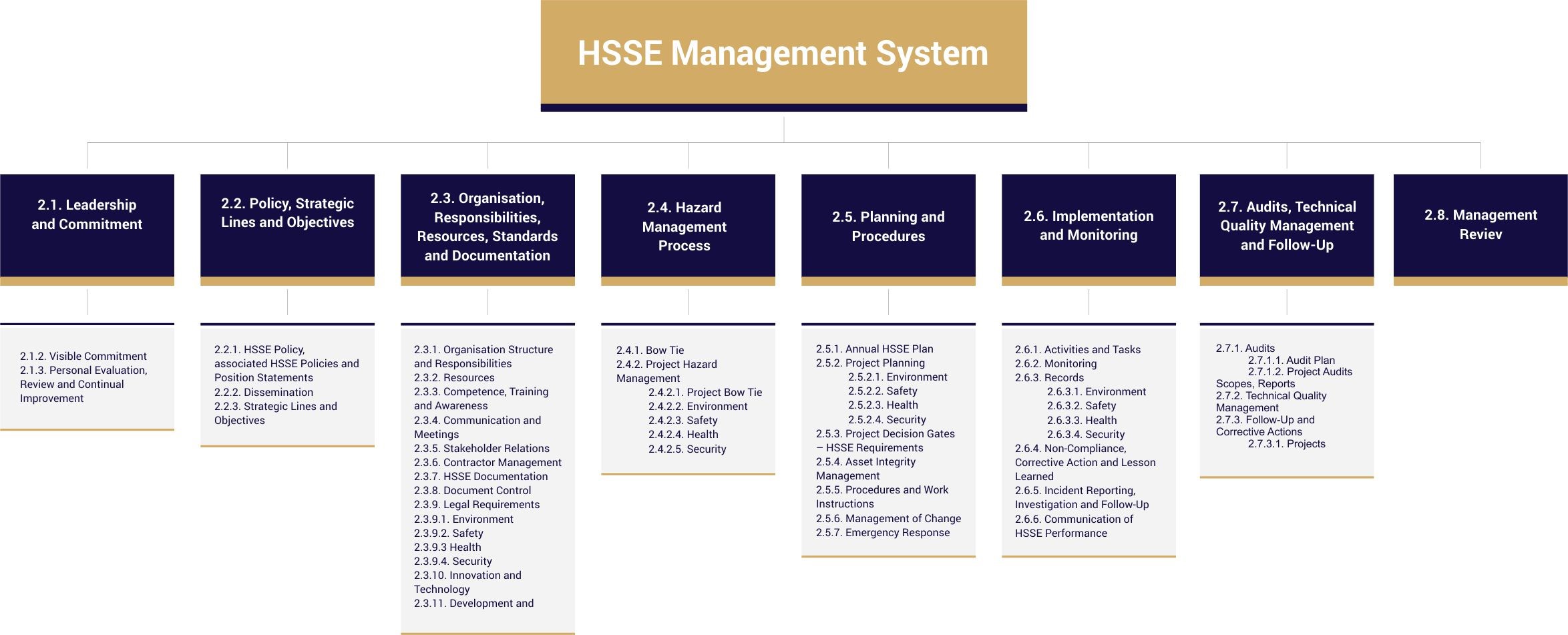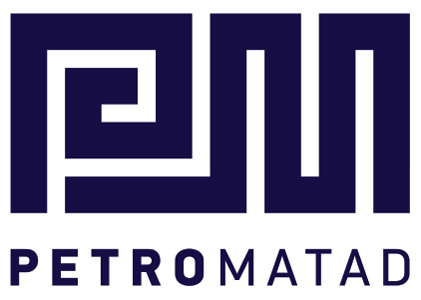This information was last updated on 23 August 2023.
Health, Safety, Security and Environment (HSSE)
Petro Matad remains demonstrably committed to best practices in health and safety management for the benefit of its workers, contractors and all stakeholders.
Petro Matad’s assets are located in remote locations in Mongolia. In this operating environment, it is essential to have fit for purpose health and safety protocols in place to operate safely. The safety of our people, our communities and the environment is our priority for all our activities.
Petro Matad cultivates and implements a safety and environmental awareness culture not only within the company but with the contractors involved with our projects and activities.
HSSE Policies
Petro Matad has established and maintains documented health and safety policies which are central in guiding all our activities. These policies are appropriate to the nature and scale of Petro Matad Group’s health, safety and security hazards.
Our policies include explicit commitments to operate in a way which is proactive in continual improvement in HSSE management performance particularly in the prevention of injury, maintaining good health of all people who may be affected by our activities. We are also committed to complying with applicable legal requirements and strive to implement relevant industry best practices in all our activities. Our policies provide the framework for setting and reviewing HSSE objectives and are actively communicated to all persons working under the control of the organization with the intent that they use the principles of the policies to guide all decision making.
It is thanks to the rigorous adherence to these standards that Petro Matad has had zero Lost Time Injuries (LTI) since 2017.
Health, Safety, Security and Environmental Policy
Petro Matad’s Health, Safety, Security and Environmental Policy requires that executive management and all employees are committed to the welfare of all, and it further requires that contractors conduct their services in line with the company’s Policies. The company understands that its people are its greatest asset and success can only be achieved by ensuring their welfare and wellbeing.
The specific objectives of Petro Matad’s HSSE Policy are to:
- Achieve an accident-free workplace.
- Make Health & Safety an integral part of every managerial and supervisory position.
- Ensure Health & Safety are considered in all planning and work activities.
- Include the company’s employees in the decision-making process though regular communication, consultation, and training.
- Ensure a minimal environmental footprint in all activities.
- Provide a continuous programme of education and development to ensure that the company’s employees work in the safest possible manner.
- Identify, manage, and control all potential hazards in the workplace through hazard identification and risk analysis.
- Ensure potential accidents and incidents are mitigated by proactive engagement, with prevention always being the objective.
- Provide effective injury management; and
- Comply with relevant occupational Health & Safety laws, regulations, guidelines, and project requirements.
The success of the company’s HSSE Management System is dependent on:
- Proactive planning of all work activities with consideration given to implementing health and safety controls that are suitable to each given situation.
- Understanding the total work process and associated health and safety risks.
- Ensuring that employees and contractors are totally committed to achieving objectives.
- Ensuring that open and honest communication exists between management and all employees.
- Minimizing impact on the environment, conserving and protecting the environment in all areas of operations.
Health and Safety Record
Petro Matad concluded 2022 with zero Lost Time Injuries (LTI) and a total of 44,190 manhours recorded. Petro Matad Group’s Total Recordable Incident Rate (TRIR), which is one of the company’s Key Performance Indicators (KPIs) was also maintained at zero. Leading and Lagging Indicators were documented throughout as part of the routine data gathering required by the company’s HSSE-MS and enabled Petro Matad and its contractors to analyze trends and anticipate potential problems so aiding in achieving the successful outcome for the year.
The commitment of the company’s management and staff and the continuous and rigorous application of safety systems, policies, and procedures, combined with ongoing training resulted in zero LTIs since 2017.
HSSE Management System
Petro Matad’s HSSE is molded by the company’s HSSE Management System (HSSE-MS). It enables real time and practical support in all the company’s activities and operations as well as ensuring structural compliance with international standards and Mongolian laws and regulations. To apply best in class practices in operating procedures as well as compliance with Mongolian legislation, the company adheres to guidelines set out in: International Association of Oil and Gas Producers (IOGP), ISO 14001 Environmental Management System Guidelines, ISO 45001 Occupational Health and Safety Management System Guidelines, International Association of Drilling Contractors (IADC), and International Association of Geophysical Contractors (IAGC).
To implement the commitments of our HSSE policies, Petro Matad has established and maintains a standards based HSSE-MS which is structured according to International Association of Oil and Gas Producers (IOGP) 510 Operating Management System Framework supported in the Supplement Report 511 Operational Management System. As revised policies and procedures are released by IOGP, the company’s HSSE-MS is updated to reflect changes accordingly.
The HSSE-MS is designed to provide practical and real time support for our operations by enabling quick and reliable access to industry standards. The HSSE-MS is explicitly aligned with ISO14001 Environmental Management System Guidelines, ISO 45001 Occupational Health and Safety Management System Guidelines, the International Association of Geophysical Contractors (IAGC), the International Association of Drilling Contractors (IADC) and American Petroleum Institute (API) guidance where appropriate.
For Petro Matad’s Environmental commitments see Environment page here.
Structure of Petro Matad’s HSSE Management System
Clear definition of standards, competence assurance, efficient and open communication and record keeping lies at the heart of our HSSE-MS. The HSSE-MS emphasize on quality assurance in communications, asset integrity and both generic task and project workplace specific competence in all activities. All risks are structured according to International Association of Oil and Gas Producers 510 Operating Management System Framework supported in the Supplement Report 511 Operational Management System Practice and ISO 45001 Occupational Health and Safety Management System Guidelines to ensure that risk management is both proactive and demonstrably effective to all stakeholders appropriate to their needs.

Operations
Petro Matad is committed to supporting the building of industry capacity for hydrocarbon exploration and exploitation in Mongolia. We are currently working with government on bolstering the legal mechanisms that are in place for future projects and developments in the country.
We manage our seismic, drilling and other field-based exploration and exploitation operations using IOGP 423 Contracting Model Guidelines and work with all successful contractors to ensure that our HSSE standards are maintained. Seismic programmes operate under the guidelines of IOGP 432 Managing HSE In A Geophysical Contract and drilling programmes to the IADC HSE Land Drilling Case. The final report and HSSE management review of all projects are seen as central to organizational learning and continual improvement.
We operate a proactive HSSE observation programme not only to identify unsafe acts and conditions but also to identify best practice in all our operations. Information from the observation programmes is actively combined with monitoring and learnings from incidents. The process ensures that effective and quick corrective actions are taken and that root cause preventative measures are identified. All incidents are investigated, recorded and classified according to IOGP guidelines and learnings are shared through the management review process.
Operational Activity
The company considers current and future HSSE needs and requirements at all times.
Due to Covid-19 pandemic restrictions and impact on the oil industry, Petro Matad was unable to conduct restoration to Heron-1 and Gazelle-1 drilling leases after operations ended in 2019. With easing of restrictions, in 2022 technical restoration was completed on both drilling leases utilizing a specialist restoration contractor. Both drilling lease areas were inspected with the province’s Handover Committee signing off on the formal compliance acceptance acts.
Subsequent to the completion of drilling of Velociraptor-1 well in Block V, Petro Matad will restore the area impacted by the drilling operations to its original state as practicably possible and obtain formal compliance acceptance acts.
Risk Management
Petro Matad recognises the significance of a proactive stance on HSSE risk management in its operations to provide measures that protect its employees, its contractors and the environment and communities within which the company operates. Prior to any operations, all risks and hazards are identified, and mitigating measures are implemented to reduce risks where possible to as low as is reasonably practical.
The nature of the company’s business involves exposure to potentially hazardous materials. Any loss of containment of hydrocarbons or other dangerous substances may have adverse effects on both the environment and the health of individuals. Through operational controls, integrity of asset protocols and environmental risk management, the company continues to aim to eliminate all environmental risks that may have an impact on the environment and stakeholders.
Engagement and Training
Through an extensive engagement programme, employees, contractors and local hires are trained on Mongolian occupational, health and safety standards and regulations for all required operations and activities. The awareness and training programme includes topics such as Mongolian occupational safety and hygiene laws, investigating industrial accidents and prevention of occupational diseases, amongst others.


